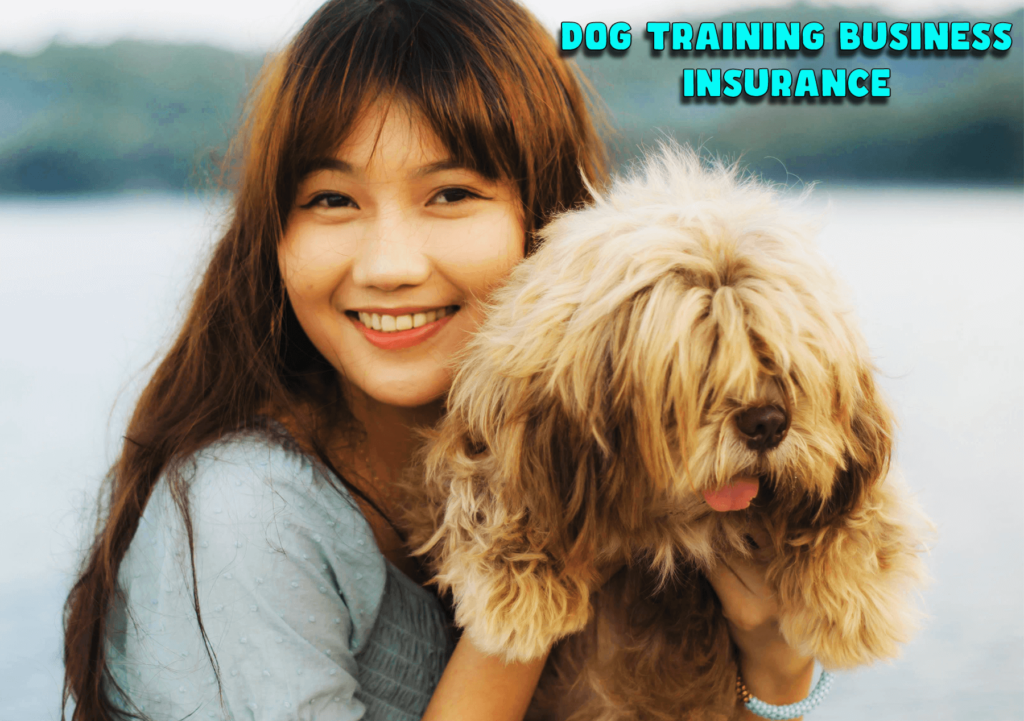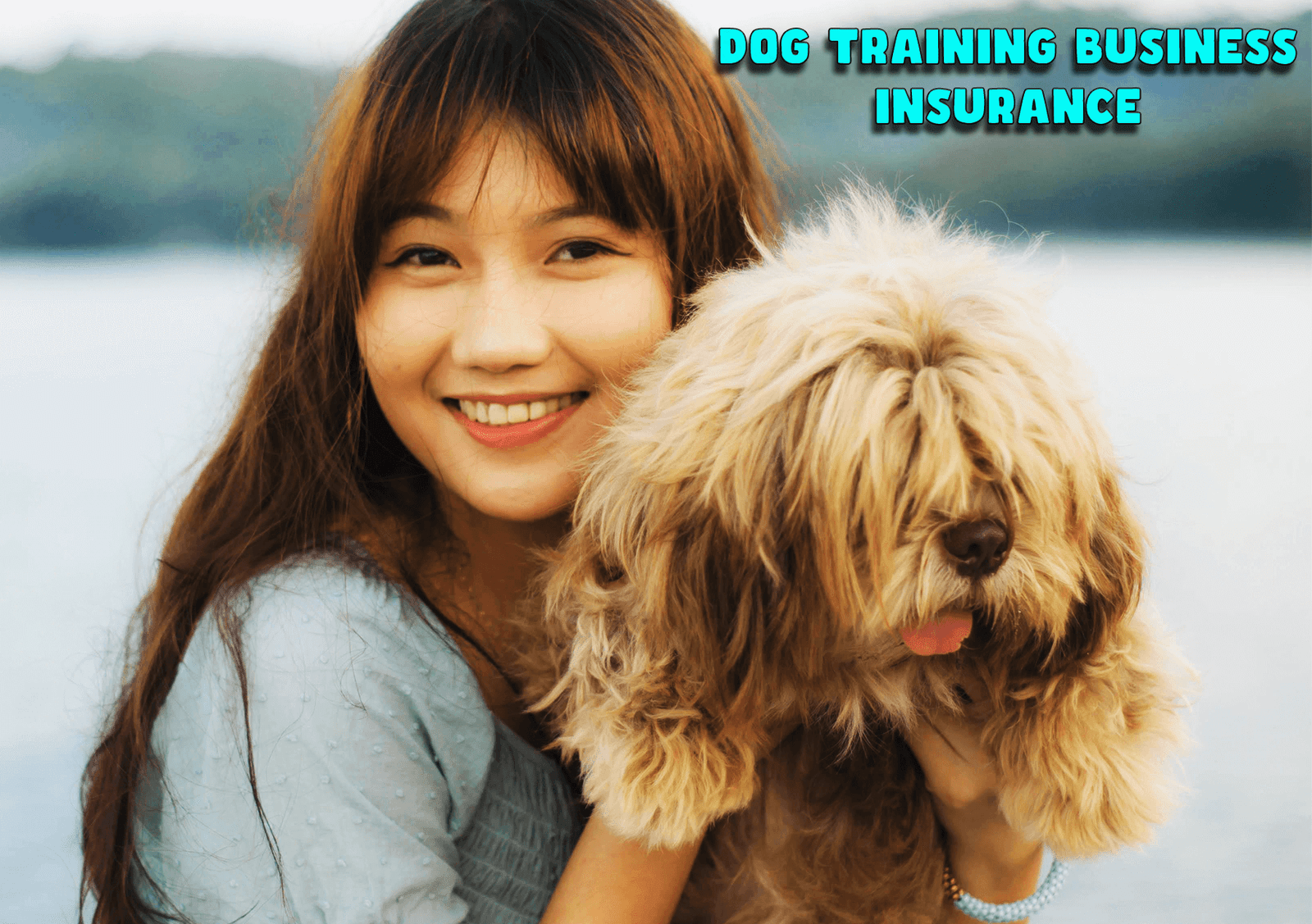Running a dog training business can be rewarding, but it also comes with inherent risks. Accidents can happen, from potential injuries to property damage, making insurance a vital component for any dog training business. This comprehensive guide will delve into the various types of insurance needed, the importance of each, legal considerations, cost factors, and practical steps to secure coverage.
Introduction to Dog Training Business Insurance
Why Dog Training Businesses Need Insurance
Insurance is crucial for dog training businesses to protect against financial losses from accidents, injuries, and other unforeseen events. It provides a safety net that allows businesses to operate confidently, knowing they are safeguarded against potential liabilities and can remain operational even when incidents occur.
Common Risks in the Dog Training Industry
Dog Bites and Injuries
Dog Bites and Injuries: Handling dogs, especially those with behavioral issues, can result in bites or scratches that cause significant injuries.
Property Damage: Both the dogs and training activities might cause damage to properties, whether owned by the business or clients.
Client Injuries: Clients can get injured during training sessions, leading to potential lawsuits.
Professional Liability: Claims of inadequate training or negligence can lead to legal disputes.
Equipment Loss or Damage: Training equipment used in the business can be damaged or stolen.
Vehicle Accidents: Businesses that provide mobile training services face the risk of vehicle accidents.
Types of Insurance Coverage for Dog Training Businesses General Liability Insurance
Coverage Scope: Bodily injuries to third parties (e.g., clients or bystanders).
Property damage caused by the trainer or dogs under their care.
Legal fees and settlements associated with claims.
Importance:
Provides basic protection against common accidents and incidents during training sessions. It is essential for all dog training businesses, regardless of their training environment.
Professional Liability Insurance (Errors and Omissions)
Coverage Scope:
Claims of negligence, misconduct, or failure to provide professional services adequately.
Legal defense costs related to professional errors.
Importance:
Covers scenarios where a client claims that inadequate training or professional advice led to injury or property damage. It is vital to protect against malpractice claims.
Commercial Property Insurance
Coverage Scope:
Damage to training facilities caused by fire, theft, vandalism, or natural disasters.
Loss of equipment and training tools.
Importance:
Protects the physical assets of a dog training business, ensuring operations can continue after an incident.
Workers’ Compensation Insurance
Coverage Scope:
Medical expenses and lost wages for employees injured on the job.
Rehabilitation costs related to work injuries.
Importance:
It is mandatory in many states for businesses with employees. It protects both the employer and employees in case of work-related accidents.
Business Interruption Insurance

Coverage Scope: Loss of income due to business operations being halted by a covered event (e.g., fire or natural disaster).
Importance:
Ensures the business can sustain financial stability during periods of unforeseen stoppages, covering ongoing expenses and lost income.
Animal Bailee Insurance
Coverage Scope: Medical expenses for dogs injured or killed under the trainer’s supervision.
Coverage for theft or escape of dogs.
Importance:
Specialized coverage for those who take custody of dogs, ensuring financial protection against incidents affecting the animals in their care.
Commercial Auto Insurance
Coverage Scope: Damage to or theft of business-use vehicles.
Liability coverage for injuries or damage caused by the business vehicle.
Coverage for commercial-use vehicles not typically covered under personal auto insurance.
Importance:
Businesses must use vehicles for training services. This protects against the financial impact of vehicle-related incidents.
Equipment Insurance
Coverage Scope: Damage, loss, or theft of training equipment and tools.
Importance:
Protects the valuable tools of the trade, ensuring you can continue operations without significant financial loss due to equipment failure or loss.
Understanding Legal Requirements
State and Local Regulations
Insurance requirements for dog training businesses may vary by state and local regulations. Understanding specific mandates is crucial to ensure compliance and inform policy selection. Some areas may require minimum liability coverage and adherence to professional standards.
Professional Requirements and Licenses
Certain jurisdictions may require dog trainers to hold specific licenses or certifications. Affiliations with professional organizations, such as the International Association of Canine Professionals (IACP) or the Association of Professional Dog Trainers (APDT), might necessitate adherence to specific insurance standards.
- Choosing the Right Insurance Policy
Assessing Your Risk Exposure
Evaluate the specific risks faced by your dog training business. Consider factors such as the types of dogs trained, training environments, business size, employee health, and existing safety protocols.
Comparing Insurance Providers
Look at different insurance providers to compare:
Premium rates and deductibles.
Coverage limits and exclusions.
Claims handling processes and customer service ratings.
Talk to fellow trainers or industry groups for recommendations and experiences with various insurers.
Reading and Understanding Policy Terms
Carefully read the terms and conditions of potential insurance policies. Understand what is covered and what is excluded, policy limits, and the claims process. Consult an insurance advisor or legal professional to clarify any ambiguities if needed.
Steps to Acquire Dog Training Business Insurance
Research and Preparation
Gather information about your business operations, risk factors, and relevant legal requirements. Prepare to provide details about your training methods, business location, and safety measures.
Getting Quotes and Comparing Options
Request quotes from multiple insurance providers. Compare coverage options, premium rates, and policy terms to find the best fit for your business needs.
Purchasing and Maintaining Coverage
After selecting a suitable policy, complete the purchase process and ensure you understand the coverage terms. Regularly review and update your insurance as your business grows or changes. Maintain records of your policies and renewal dates.
Cost of Dog Training Business Insurance Factors Affecting Insurance Costs
Business Size: Larger businesses may face higher premiums due to increased risk exposure.
Location: The geographic location of your business can impact insurance costs based on local laws and risk factors.
Number of Employees: More employees can increase the risk of workplace injuries, influencing insurance premiums.
Claims History: A history of multiple claims may result in higher insurance costs.
Average Premium Rates
Premium rates for dog training business insurance can vary widely. General liability insurance might range from $300 to $1,000 annually, while professional liability coverage could cost between $200 to $800 annually. Commercial property insurance costs depend on the property’s value and might range from $500 to $2,000 annually. Ways to Reduce Insurance Costs
Risk Management Practices: Implement safety measures to reduce risk exposure and claims frequency. Bundle Policies: Combine different types of insurance with one provider to receive discounts.
Increase Deductibles: Opt for higher deductibles to lower premium rates.
Employee Training: Train employees in safety practices to minimize workplace accidents.
Claims Process and Handling Disputes Filing an Insurance Claim
Document the Incident: Collect evidence, including photos, witness statements, and medical reports.
Report the Incident: Notify your insurance provider as soon as possible.
Complete Claim Forms: Fill out necessary paperwork accurately and provide all required documentation.
Follow-up: Maintain communication with the insurance adjuster and keep track of the claim progress.
Resolving Coverage Disputes
Review Policy Terms: Ensure the claim falls within the coverage terms.
Communicate Clearly: Explain the dispute clearly to the insurance provider.
Seek Mediation: If unable to resolve directly, consider mediation services.
Legal Action: As a last resort, pursue legal action to seek a fair resolution.
Case Studies and Real-Life Examples
The Incident: A trainer working with an aggressive dog experienced a serious bite, resulting in medical treatment and lost workdays.
Insurance Response: The trainer’s general liability insurance covered the victim’s medical expenses and associated legal costs.
Outcome: The trainer maintained their policy and updated safety protocols to prevent future incidents.
The Incident: A dog caused significant damage to a client’s home during a training session.
Insurance Response: The trainer’s property damage coverage within the general liability insurance covered the repair costs.
Outcome: The trainer reviewed risk management strategies to minimize future property damage claims.
Frequently Asked Questions (FAQs
- What types of insurance are essential for dog training businesses?
Answer: General liability, professional liability, commercial property, workers’ compensation, business interruption, animal bailee, and commercial auto insurance are crucial for protecting a dog training business. - Do I need insurance if I only train dogs part-time?
Answer: Yes, even part-time trainers face potential risks. Adequate insurance coverage ensures protection against claims and losses. - Does insurance cover training tools and equipment?
Answer: Commercial property or equipment insurance generally covers damage or loss of training tools and equipment. - How do I know how much coverage I need?
Answer: Assess your business size, risk exposure, and local regulations. Consulting with an insurance advisor can help determine appropriate coverage levels. - Can I be sued for a dog bite even if I took all precautions?
Answer: Yes, despite precautions, dog trainers can face lawsuits due to the unpredictable nature of animals. Insurance provides financial protection in such cases. - What should I do if my claim is denied?
Answer: Review the reasons for the denial, appeal the decision, provide additional documentation, and consider seeking mediation or legal advice if necessary. - Are there specific insurance companies that specialize in dog trainer coverage?
Answer: Several insurers offer specialized coverage for dog trainers. For tailored policies, research providers that focus on pet-related businesses. - Can my client’s homeowners insurance cover incidents involving their dogs during training?
Answer: While homeowners insurance may offer some coverage, trainers must have their own policies to ensure comprehensive protection. - What steps can I take to enhance my business’s insurability?
Answer: Implement strong risk management practices, regularly review and update safety protocols, train employees, and maintain a clean claims history. - How often should I review my insurance policies?
Answer: Review policies annually or whenever significant changes occur in your business operations.
Conclusion
Insurance for dog training businesses is indispensable for safeguarding your business against potential risks and liabilities. From accidental injuries to property damage, the right insurance coverage ensures you can continue to provide valuable training services while protecting your financial stability. By understanding the types of insurance available, legal requirements, cost factors, and best practices for acquiring and managing coverage, dog trainers can make informed decisions to secure their businesses.
The dynamic and often unpredictable nature of working with dogs necessitates comprehensive insurance planning. Regularly reviewing and updating insurance coverage as your business evolves, staying informed about industry standards, and fostering a safe training environment are critical components of effective risk management.
Ultimately, investing in appropriate insurance coverage not only protects your livelihood but also underscores your commitment to professionalism and responsible business practices. As a dog trainer dedicated to enhancing the lives of dogs and their owners, robust insurance coverage equips you to navigate the challenges and continue fostering positive canine-human relationships with confidence and peace of mind.

I’m a Canada, UAE, US, and UK-based writer and dog expert blogger. I spent over five years learning about dog food and grooming techniques. Additionally, I recommend avoiding and properly treating various physical problems in dogs. I am here to share my knowledge about good dog nutrition and care.

